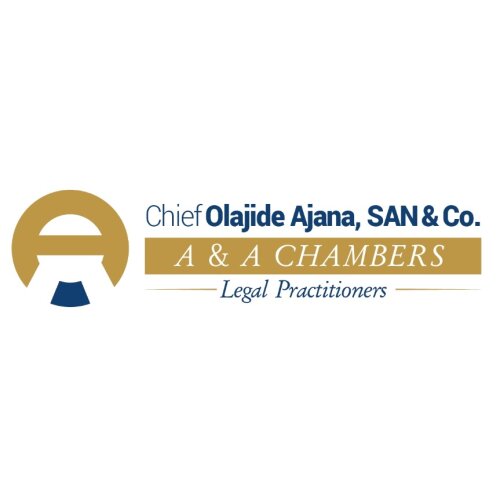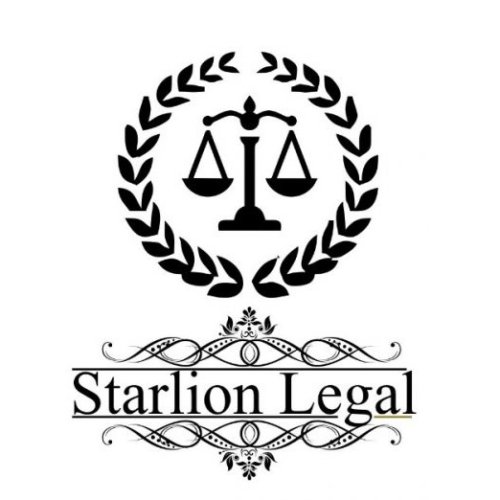Best Tax Increment Financing Lawyers in Abuja
Share your needs with us, get contacted by law firms.
Free. Takes 2 min.
List of the best lawyers in Abuja, Nigeria
About Tax Increment Financing Law in Abuja, Nigeria
Tax Increment Financing (TIF) is a public financing method used as a subsidy for redevelopment, infrastructure, and other community-improvement projects in many countries, including Nigeria. In Abuja, TIF is designed to stimulate private investment in strategic areas identified by local authorities. By using future gains in taxes to finance current improvements, TIF aids the urban development goals without raising the existing tax rates. Abuja's TIF projects aim at promoting economic development, eliminating urban blight, and upgrading infrastructure.
Why You May Need a Lawyer
Navigating the complexities of Tax Increment Financing can be challenging. Here are some situations where you might need legal advice:
- Understanding the eligibility criteria for TIF assistance and ensuring compliance with legal requirements.
- Negotiating terms with stakeholders, including government agencies, developers, and community organizations.
- Ensuring that applications and documentation meet the necessary legal and regulatory standards.
- Resolving disputes related to property rights, project implementation, or financial obligations.
- Assessing legal implications of project modifications or delays.
Local Laws Overview
Tax Increment Financing in Abuja is governed by a set of local laws and regulations aimed at fostering equitable and sustainable urban development. Key aspects include:
- Adherence to the Land Use Act, which governs all land allocations and transfers.
- Compliance with environmental regulations to ensure sustainable development practices.
- Requirements for public accessibility and transparency in TIF project planning and implementation.
- Provisions for community involvement in decision-making processes to ensure local needs are met.
- Financial regulations to ensure accountability and appropriate use of public funds.
Frequently Asked Questions
What is Tax Increment Financing?
Tax Increment Financing (TIF) is a financial tool used to promote development and improvement projects by utilizing the anticipated future tax gains resulting from such projects.
Who can apply for TIF in Abuja?
Developers, local governments, and community development organizations can apply for TIF assistance to support eligible infrastructure and redevelopment projects.
How are TIF funds allocated?
TIF funds are allocated based on project needs, potential impact, and alignment with city development objectives. A proposal must meet criteria set by local governing bodies.
Are TIF-assisted projects subject to public oversight?
Yes, TIF projects are typically subject to public oversight to ensure transparency and accountability in the use of public funds.
What role does the Land Use Act play in TIF?
The Land Use Act regulates land tenure and the allocation of land in Nigeria, ensuring that all TIF projects comply with legal land use and ownership requirements.
Can TIF be used for residential development?
Yes, TIF can be used for residential projects that promote economic development and improve urban living conditions, especially in designated redevelopment areas.
What are the risks associated with TIF projects?
Risks include project overruns, changes in market conditions, and potential legal disputes over land rights or community impact.
How can I appeal a TIF decision?
If you disagree with a TIF decision, you can seek legal recourse through administrative appeals or by challenging the decision in court.
What is the typical duration of a TIF project?
The duration of a TIF project varies based on its complexity and scale. Projects can last from several years to decades, depending on the development goals and investments involved.
How does TIF impact local communities?
TIF projects aim to stimulate economic growth, improve infrastructure, and enhance community amenities, thereby having a positive impact on local communities. However, managing community expectations and potential displacement is crucial.
Additional Resources
The following resources can provide further assistance and information about Tax Increment Financing in Abuja:
- The Abuja Investments Company Limited (AICL) for guidance on investment opportunities.
- The Federal Capital Territory Administration (FCTA), which oversees urban development and planning.
- The Nigerian Investment Promotion Commission (NIPC) for information on regulatory and policy frameworks.
- Legal services offered by firms specializing in real estate and urban development.
Next Steps
If you need legal assistance regarding Tax Increment Financing in Abuja, consider the following steps:
- Identify and consult with a lawyer experienced in TIF and urban development law to discuss your specific situation.
- Gather all relevant documents and information to provide your lawyer with a comprehensive understanding of your needs.
- Stay informed about local regulations and policy changes by attending community meetings or workshops related to TIF.
- Consider joining local networks or associations focused on urban development to share experiences and gain insights.
Lawzana helps you find the best lawyers and law firms in Abuja through a curated and pre-screened list of qualified legal professionals. Our platform offers rankings and detailed profiles of attorneys and law firms, allowing you to compare based on practice areas, including Tax Increment Financing, experience, and client feedback.
Each profile includes a description of the firm's areas of practice, client reviews, team members and partners, year of establishment, spoken languages, office locations, contact information, social media presence, and any published articles or resources. Most firms on our platform speak English and are experienced in both local and international legal matters.
Get a quote from top-rated law firms in Abuja, Nigeria — quickly, securely, and without unnecessary hassle.
Disclaimer:
The information provided on this page is for general informational purposes only and does not constitute legal advice. While we strive to ensure the accuracy and relevance of the content, legal information may change over time, and interpretations of the law can vary. You should always consult with a qualified legal professional for advice specific to your situation.
We disclaim all liability for actions taken or not taken based on the content of this page. If you believe any information is incorrect or outdated, please contact us, and we will review and update it where appropriate.

















